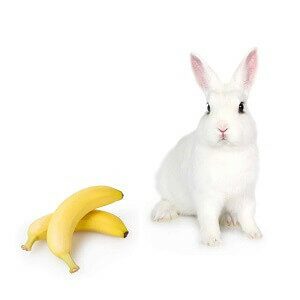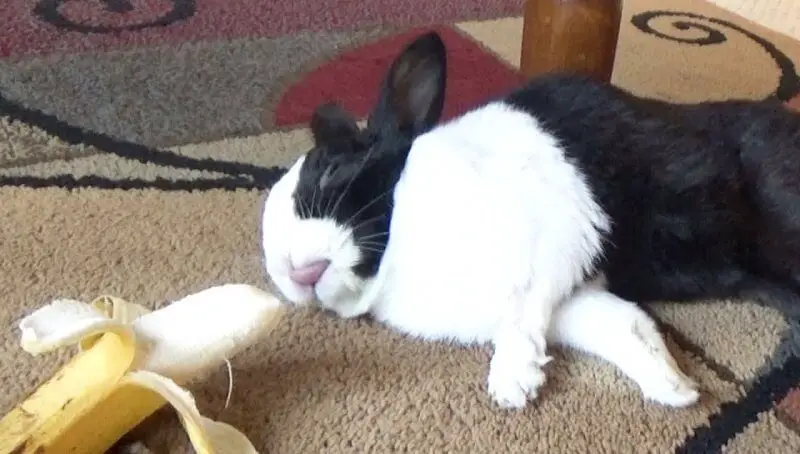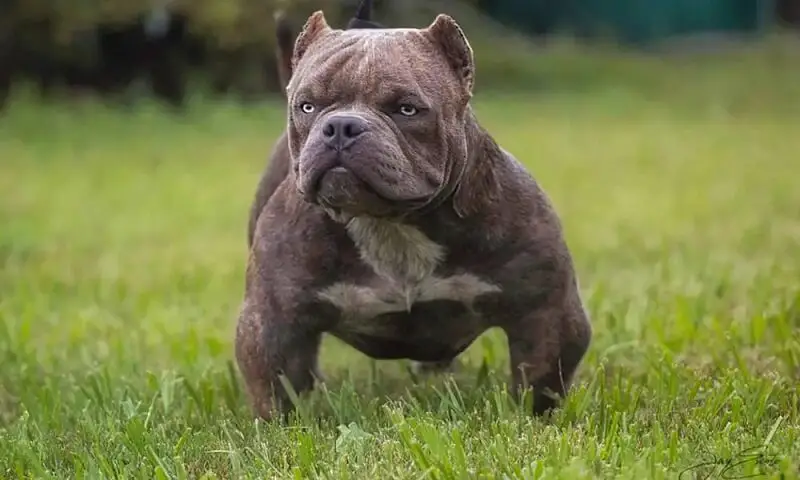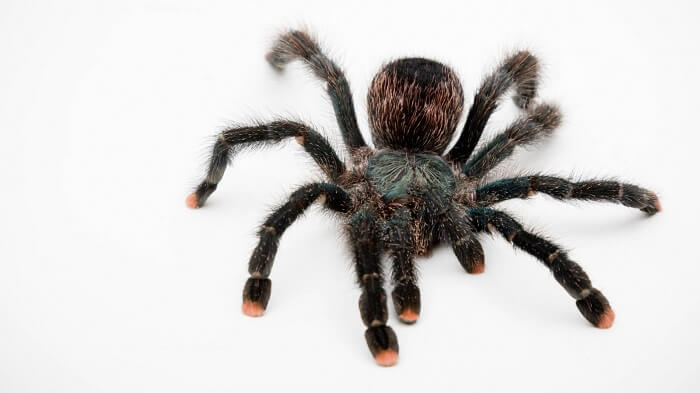Owners find rabbits adorable when eating something they particularly like. Rabbits love bananas because of their sweet taste, but are bananas safe food for them?
Rabbits should not be fed a piece of banana that is larger than an adult human thumb. This is because bananas are rich in starch and sugar, which can affect the digestive tract of the rabbit. When fruits are given to rabbits in excess for prolonged periods, they can lead to life-threatening conditions such as gastrointestinal stasis.
It’s hard for rabbits to stop eating bananas once they get the taste of them. Treating a rabbit with sweet-tasting bananas can cause it to lose its appetite for healthier and more nutritious foods, such as green leaves. Your rabbit may also get into the habit of begging for goodies.
Are bananas safe for rabbits?
Fresh, raw bananas can be eaten safely, but only in moderation. While bananas are rich in water, potassium, vitamin B6 and antioxidants, they are also full of starch and sugar.
Too much sugar and starch in a rabbit’s diet can lead to digestive problems, upset stomach, gas, and diarrhea. Sugar is also known to cause painful dental problems in rabbits, which require veterinary attention.
In addition, excess starch and sugar are converted into fat in the body of a rabbit. This can lead to unnecessary weight gain and obesity. Obesity is linked to a wide range of problems, such as pododermatitis, gastrointestinal stasis, pregnancy toxemia, and myeloid.
Avoid feeding your rabbit bananas that are too ripe, banana chips, banana goodies, banana bread, and other banana-prepared foods, as they are often high in sugar, starch, sodium, and fat. Packaged foods containing bananas contain preservatives, chemicals, artificial flavors, and added sugar, all of which can harm the sensitive intestine of the rabbit.
Keep your rabbit away from too-ripe bananas
The process through which a banana rips is regulated by a natural compound called ethylene gas. Ethylene gas turns bananas brown, changing their texture, color, and flavor. When a banana produces ethylene gas, it also affects its nutritional value.
You might also like my articles on whether rabbits can eat raspberries, cabbage, or pineapple.
Bananas are composed of 80-90% resistant starch as part of their carbohydrate content. As bananas ripen, resistant starch turns into free sugars.
Free sugars alter beneficial intestinal bacteria in the digestive tract, causing soft stools, stomach pain, and other troublesome intestinal problems. Moreover, they are easily converted into fat when they are in excess, which leads to obesity.
Bananas with a green tint have fewer free sugars. Therefore, they are a little healthier than too-ripe or brown bananas. But too-ripe bananas are still safe for rabbits, as long as there are no traces of mold. The key is not to exceed the recommended amount.
How much banana can a rabbit eat?
The general guideline for the recommended amount of bananas you can give your rabbit is based on its weight. Rabbits should not be given more than 2 tablespoons of bananas per 5 kilograms of their body weight, 2-3 times a week. As a general rule, you should never feed a rabbit with a piece of banana that is larger than the size of your thumb.
If your rabbit tries the banana for the first time, give it no more than 1 tablespoon a day. This is to ensure that your rabbit does not react negatively to the new food, and if it does, you can eliminate it effectively. Always introduce new foods into the rabbit’s diet slowly to avoid unnecessary reactions.
Avoid giving bananas to rabbits younger than 12 weeks, as their digestive tract is very sensitive.
Health benefits of bananas in rabbits
Your rabbit’s diet should consist of hay, water, high-quality pellets, and green leaves. Anything other than these, including fruits like bananas, is a treat and should only be given in small amounts.
If your rabbit tolerates it, 2 tablespoons of fruit per 5 kilograms of body weight can add more vitamins, minerals, and antioxidants to your pet’s diet.
Bananas are a rich source of nutrients that rabbits need for their growth and development. Some of these include:
- Potassium. Potassium is an excellent muscle relaxant for rabbits, which helps reduce their stress and improve sleep. It is also good for the heart.
- Water. Bananas have 75% water, which is necessary for the proper functioning of their digestive tract in preventing dehydration.
- Vitamin B6. The Journal of Applied Animal Science suggests that vitamin B6 improves immune system functions in the rabbit’s body.
- Manganese. It helps metabolize carbohydrates, proteins, and fats.
- Folate. It stimulates red blood cell production and immunity.
- Phosphorus. Necessary for the development of bones, along with calcium.
Rules of banana feeding in rabbits
Note the following rules if you add bananas to your rabbit’s diet:
- Do not feed bananas, or any fruit or vegetable, to rabbits younger than 3 months.
- Offer leafy vegetables before fruits in the diet of a growing rabbit.
- Add the fruit gradually to your rabbit’s diet and do not insert the bananas along with another fruit, such as pumpkin pulp.
- Offer in moderation, as bananas are high in sugar and starch.
- Let your pet adjust to bananas for 24 hours before giving them again.
- Increase the amount of banana up to the recommended dose.
- Make sure that hay still makes up about 80-90% of your rabbit’s diet.
- If your rabbit shows signs of digestive disorders, stop giving it bananas and call your veterinarian for assistance.
Do rabbits like bananas?
 Rabbits love bananas because of their sweet taste. A rabbit will continue to ask for more because sugar creates a strong addiction.
Rabbits love bananas because of their sweet taste. A rabbit will continue to ask for more because sugar creates a strong addiction.
Giving it too many bananas can make your rabbit lose interest in other more nutritious foods, such as leafy vegetables. Some rabbits can even beg for bananas and refuse to eat anything else.
Therefore, make sure that bananas are not the only treats you offer your rabbit. Offer it in moderation and mix them with other healthy fruits, such as blueberries and apples.
If this is the first time your rabbit tries the banana, do not give it more than 1 tablespoon for the first 24 hours. This will give you enough time to notice any changes in your rabbit’s digestion or feces and will allow you to remove bananas from its diet if negative symptoms occur.
Can rabbits eat banana peels?
Banana peels are safe for eating rabbits, but like bananas, they are also dense in sugar and starch. Therefore, they should only be offered in small quantities as a treat.
In addition, if you give your rabbit banana peels, it is better to limit it to organic bananas. Conventional banana peels are covered by pesticides and chemical fertilizers that can be harmful to the health of the rabbit.
If you do not have organic bananas, it is best to throw away the peel and give your rabbit only the pulp.
Can rabbits eat banana leaves?
Your rabbit may like to chew banana leaves. Banana leaves are safe for them and can be introduced as part of a balanced diet. They are an excellent addition to the green leafy portion of the rabbit’s diet.
Just make sure the leaves come from an organic farm. If banana leaves are covered with pesticides and chemical fertilizers, they can cause life-threatening complications in rabbits in the long run.
Talk to your veterinarian before adding bananas, banana peels, and banana leaves to your rabbit’s diet. Your veterinarian may advise you not to add them to your rabbit’s diet if it suffers from dental problems, a sensitive digestive tract, or weight problems. Also, bananas are not recommended for rabbits under 3 months of age or rabbits that react negatively to high-sugar fruits.




